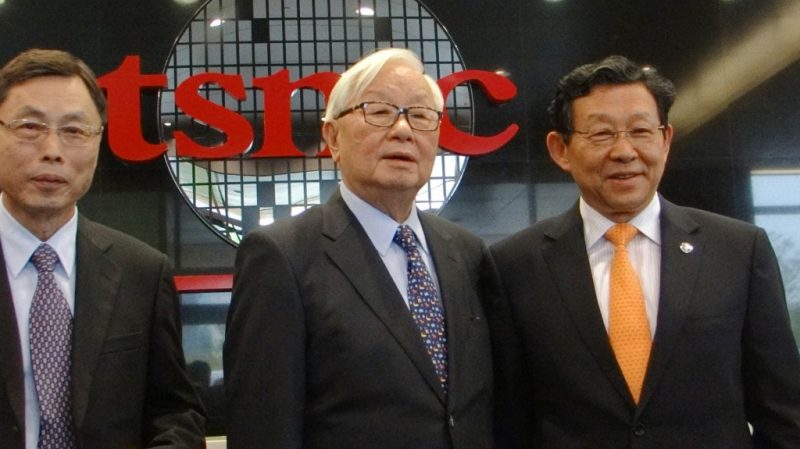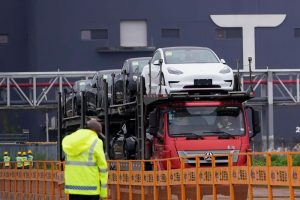(ATF) Taiwan Semiconductor Manufacturing Company dimmed its 2020 sales outlook in April as the world coronavirus pandemic hit consumer spending. Later the company better known as just TSMC reportedly quit producing for Huawei – a Chinese tech giant embroiled in the Sino-US trade dispute – to follow rules that would affect eventual production in the United States.
But the Taiwan-based, New York-listed contractor reconfirmed its heavyweight status in the global semiconductor industry last month with a widely reported deal to make MacBook silicon with a technology that hardly anyone else is good at. Specifically, analysts believe, the contract will give a long-lasting boost to TSMC’s 5-nanometer chipmaking technology.
“The 5-nanometer process node remains an important node for TSMC, which currently leads other foundries in terms of 5-nanometer mass production,” said Chris Hsu, an analyst with market research firm TrendForce in Taipei. “As well, TSMC is able to satisfy client demand with its 5-nanometer wafer capacity planning, which shows that TSMC both values and is confident in its 5nm process technology.”
Nanometer figures such as five refer to the size of cuts that lithographs make in semiconductors. Smaller numbers produce chips that can run faster and on less power.
Industry analysts and tech media outlets reported that Apple leaders told a developer conference in late June they would tap TSMC to make custom silicon for MacBooks. Apple at the same time dropped Intel as a MacBook chipmaker, investment bank ANZ said in a June 23 research note.
Neither Apple nor Foxconn would confirm any deal for this report.
Based on TSMC’s capital expenditure structure, current orders and end-user demand, the Beijing-based investment research firm EqualOcean estimates that 5-nanometer technology will bring TSMC up to 8% of this year’s revenue and 17% of revenue next year.
One of two top chipmakers
Samsung is the only other chipmaker that has mastered the same technology, analysts believe.
“The 5-nanometer node is projected to be as long-lasting as the 7-nanometer,” EqualOcean analyst Ivan Platonov said. TSMC began 7-nanometer mass production in 2018. “And the new market segment will, almost certainly, remain a duopoly for years,” he said.
The 5-nanometer process is already in “volume production with good yield,” a TSMC spokesperson said for this report in late June. The company sees that technology as the industry’s “most advanced solution” with 20% more speed compared to 7-nanometer.
“We will offer continuous enhancements to further improve the performance, power and density of our 5-nanometer technology solution into the future as well,” the spokesperson said.
“We are confident that 5-nanometer will be another large and long-lasting node for TSMC.”
TSMC leads Samsung in 5-nanometer chip manufacturing costs, Platonov said.
And the Taiwanese company anticipates rolling out 2-nanometer and 3-nanometer processes between 2022 and 2024.
TSMC has become a world semiconductor icon over its 33-year history by coming out before its competitors with new lithography processes. Orders from global electronics firms pushed it to become one the highest-valuation companies in Asia over the past decade and gave it $34.6 billion in revenue last year.
The MacBook deal alone, however, will not get TSMC past any lost Huawei orders, Hsu said.
TSMC’s projected wafer input from the MacBook deal makes up just under 20% of the wafer input from its original deal with Huawei, Hsu said.
EqualOcean expects the MacBook deal would replace 25 to 30% of “Huawei ban-related losses,” research assistant Lu Dixuan said. But other clients are “queueing up for TSMC’s services,” Lu added.
Apple already sources chips from nine TSMC plants in Taiwan, the ANZ note says. Apple notebook computer shipments will total about 14 million this year, a 10% increase over 2019, TrendForce forecasts.
“(The MacBook) is a decent rainy-day product line due to relatively high margins and stable demand in the high-end segment,” Lu said.
























